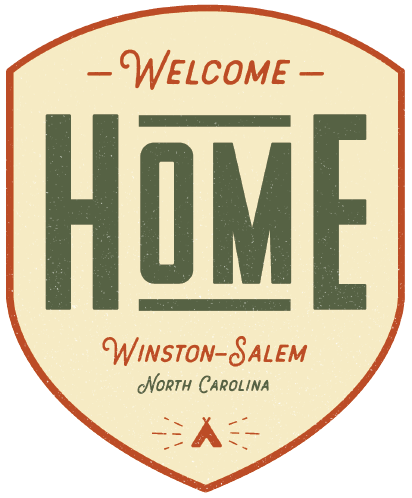First-Year Housing
Mailing Address
P.O. Box 7749
Winston-Salem, NC 27109

A place to hang your top hat.
Here, you’ll find a residential experience that allows you the freedom to be exactly who you are and explore who you want to be, surrounded by the resources necessary for each student to reach their full potential.
Here, living and learning are forever combined within a diverse community. Our residential commons model, The Forest, is intentionally designed to connect students to the resources they need to thrive at Wake Forest.
In many ways, a deeply connected residential experience is not new to Wake Forest. Within this residential experience, we will curate an environment students can make their home – a home where living and learning are inseparable.
Living on campus is where the memories are made. This is where you belong. From all of our staff to you, welcome home!
What you need to know
First-year housing assignments

During your first year, you will typically live in one of our communities on South Campus.
You will be assigned to one of these communities at random. As such, students are not asked or able to indicate preferences.
New students may be assigned to a single or double room based on their preferences and availability. Note that students assigned to single rooms are charged at the single rate.
First-year roommates
First-year roommates are assigned randomly by the Office of Residence Life and Housing based upon the lifestyle questions on your housing application.
This roommate pairing process is reflective of the University’s commitment to helping incoming students get to know individuals different than themselves. As a continuing student, you will be able to select your community and choose your own roommate(s).
We have found that students who have the same smoking preferences, study habits, noise tolerance, and sleep schedules tend to have positive experiences living together.
While no one can guarantee a “perfect roommate,” we find that pairing students based on these behaviors offers a starting point from which students can develop a rewarding roommate experience.
It is important that you answer each question on the housing application honestly so that we can best match you with a roommate.
Residency requirement
Wake Forest has a six-semester residency requirement and is committed to providing eight semesters of on-campus housing for residential students in good standing. Students are expected to fulfill the residency requirement consecutively, barring time away from the University (e.g. CES, withdrawal).
Students may request an exception to the residency requirement if they meet certain criteria by submitting a written request to Residence Life and Housing at housing@wfu.edu.
Disability-related housing or dining accommodations
Wake Forest University views living on campus as integral to a liberal arts education and the Wake Forest experience. As such, the University has a six-semester resident requirement.
The Office of Residence Life and Housing has a wide variety of housing and dining options and provides reasonable accommodations to students with disabilities who request housing and/or dining accommodations.
The University has a number of residential facilities of varying configurations and construction, ranging from a typical residence hall room with a community bathroom to suites and apartments that contain private or limited-access bathrooms and kitchens with full-size appliances, as well as different types of HVAC systems.
A release from the University’s residency and/or meal plan requirements is generally not considered reasonable accommodation. Most housing or dining accommodations can be made among the current residential and dining facilities on campus.
Students who would like to request a disability-related accommodation should visit our housing and dining accommodations page. Students should provide documents for disability-related accommodations by July 1.
Important note: If you have a documented disability and used accommodations in high school, be sure to complete the housing and dining accommodations request form. Some students want to try college without those accommodations and later discover they wished they’d had the accommodation from the beginning. In addition, our ability to meet a student’s needs is much more limited after housing assignments have been made, so we strongly encourage students to request accommodations by the July 1 deadline.
All-gender housing
Wake Forest University offers an All-Gender Housing offering for incoming students desiring to live in a mixed-sex living environment. For incoming students, this will be rooms/suites clustered together in an area of a residence hall with private bathrooms (toilet and shower areas).
As a part of this process, students will be asked to complete additional questions on their Housing and Dining Application. Students who request All-Gender Housing will then be contacted by staff from the Office of Residence Life and Housing to discuss the best way to accommodate their housing needs. During the process, no student will be asked to disclose their sexual orientation, gender identity, or gender expression.
For questions, concerns, or assistance with the All-Gender Housing process, please contact any of the following individuals –
- Dr. Zach Blackmon (he/him/his)
Associate Director of Operations, Office of Residence Life and Housing
336.758.5185
blackmzr@wfu.edu - Kayla Lisenby-Denson (they/them/their)
Director, LGBTQ Center
336.758.4917
lisenbks@wfu.edu
Room types
As a new student, your room will be assigned based on your responses to the Housing Application. New students may be assigned to a single or double room based on their preferences and availability. Note that students assigned to single rooms are charged at the single rate.
Room furnishings
Each residence hall room includes an extra long twin bed (36″ by 80″), a dresser, a desk, and a desk chair. All rooms have window blinds and a closet or wardrobe unit. You may bring your own floor rug or purchase it upon your arrival to campus. Because each space varies, sometimes greatly, we encourage you to wait until you arrive on campus and see your exact space before purchasing items. By coordinating with your roommate(s) on these items, you will avoid purchasing duplicates.
Each room also has a MicroFridge® appliance (combination microwave/refrigerator-freezer unit), so there is no need to buy or rent a refrigerator. The microwave has a capacity of 0.7 cubic feet and a turntable for even heating.
Approved small appliances may be used or stored in residence hall rooms. Please refer to our Guide to Community Living for details.
Residents in each residence hall have access to community kitchens featuring full-size appliances.
Faculty Fellows
Look for your Faculty Fellow team in your residence hall! Faculty Fellows come from a diverse background of academic disciplines with something in common–they care deeply about helping students feel like they belong outside of classrooms, too. Faculty Fellows are faculty members who work in small teams with each first-year residence hall to build community. These faculty are exceptional examples of Wake Forest faculty-student engagement and mentorship; consider them expert neighbors here to help guide you around your new home. They certainly don’t do that work alone, but they are one more supportive group here to help you, as a new college student, find your people and places.
Reach out to your Faculty Fellows if you have questions–especially academic ones! Look out for their outreach and events, and drop by. They plan on being in your hall at least once a week for in-hall programming, including pop-up or planned meals or snacks, informal interactions and advising, and hall trips to on- and off-campus events.
Insurance
Wake Forest University (which includes the Office of Residence Life and Housing) does not assume responsibility for theft, loss, or damage to your personal property. Most thefts occur when residents leave their room doors unlocked and/or their property unattended. Keeping your room locked at all times is your best defense against theft.
Additionally, the University does not cover property loss for damage due to facility incidents that may occur. Before coming to campus, you should determine what it would cost to replace belongings such as clothing, electronics — including cell phone, television, laptop — linens, etc.
As part of the housing application process, you will have the opportunity to purchase renter’s insurance from a partner vendor, GradGuard. Additionally, you may wish to check your family’s homeowners insurance policies. Many policies will cover loss or theft even if the policy is in your parents’ names and you are living on campus.
Additional Information
The Residence Life and Housing website contains lots of information for our newest students, including more details on the items above as well as the answers to frequently asked questions such as:
- How do I apply for housing and select a meal plan?
- How are roommates matched? When will I find out my roommate?
- What can or can’t I bring with me to campus?
- When can I move in?
For more specific questions or further assistance, please contact Residence Life and Housing at 336.758.5185 or housing@wfu.edu during business hours.
Who’s Who
Resident Advisors (RAs)
Wake Forest undergraduate student leaders responsible for building community and connecting students, RAs plan initiatives for not only their smaller communities but also for the overall residential community they serve. Our South Campus communities have between seven and eleven RAs, based on the community. Look for a welcome email from your RA in August!
Graduate Hall Director (GHD)
A live-in graduate student who assists professional and student staff in the general management of a residential community, which houses 200-300 undergraduate students. Graduate Hall Directors focus on the staff and student development needs of the community they are assigned to.
Community Director (CD)
A full-time master’s-level, live-in professional who manages a residential community and supervises RAs and GHDs. CDs work with their staff to foster inclusive community through co-curricular initiatives, mentorship and faculty engagement. Additionally, CDs work to ensure that students understand and abide by University policy and provide general assistance to students with residential concerns.
